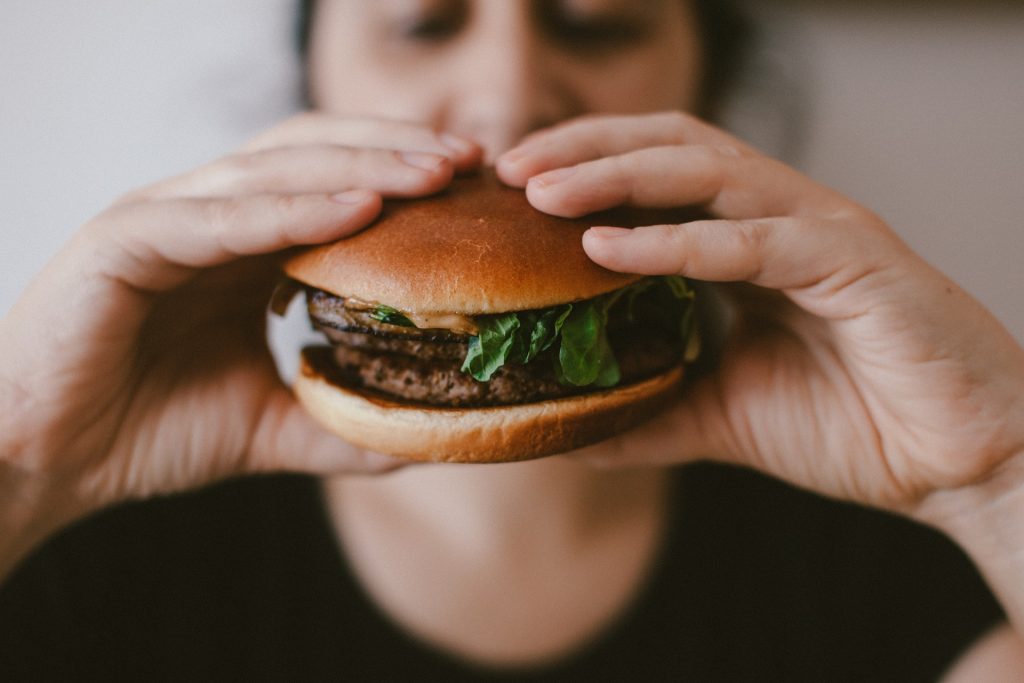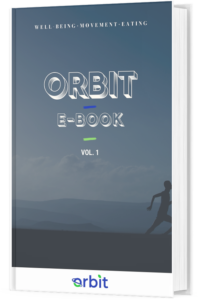A calorie-restrictive, or food restricting diet is not a diet you can sustain for the rest of your life. Finding an alternative approach to long term weight management is essential for your long-term health. Learning about intuitive eating can help regain your trust with food and your body, while focusing on internal hunger and fullness signals.
Say Goodbye to the Fad Diets
- Have you tried every calorie-restrictive diet to lose weight? Have you become more body focused, and food focused than ever? Are you sometimes hesitant to attend social gatherings out of fear of breaking your food rules, and start binging on all the foods at the party? Do you feel sadness to not be able to eat specific foods due to your food rules?
It is hard not to try all the miraculous “weight-loss diets” out there when the 60-billion-dollar a year weight loss industry surrounds us all the time, everywhere.1 Within YouTube videos, recipe websites, or magazine articles, you will always find “how to lose weight in 3 simple steps.”
- Have you noticed that after some time you always end up gaining the weight you lost? Food restrictive diets may reduce your weight temporarily but they tend to make you gain that weight back or more in the long run.2 What’s more is that the cycle of weight loss and weight gain may contribute to psychological and emotional damage.2
Your relationship with food is as important as your relationship with people. Food dictates your energy levels, your exercise performance, and your mood (and much more!). Guilt-free and pleasurable experiences with food will impact many aspects of your life. More than you think. Developing a healthy relationship with such an important part of your life should be a priority in sustaining a healthy lifestyle.
Enters: Intuitive Eating
Intuitive Eating3 is a book, created by Evelyn Tribole and Elyse Resch, that presents 10 principles to create a healthy relationship with your food, body, and mind. The 10 principles build upon one another. Work on every principle one by one. Today we are starting with Principle #1.
Before beginning, please fill out Evelyn Tribole and Elyse Resch’s modified questionnaire4 to know whether you are an intuitive eater. This questionnaire will provide more information upon the areas you may want to work on.
ARE YOU AN INTUITIVE EATER?
| UNCONDITIONAL PERMISSION TO EAT | ||
| YES | NO | I try to avoid certain foods high in fat, carbohydrates, or calories. |
| YES | NO | If I am craving a certain food, I don’t allow myself to have it. |
| YES | NO | I follow eating rules of diet plans that dictate what, when, and /or how to eat |
| YES | NO | I get mad at myself for eating something unhealthy |
| YES | NO | I have forbidden myself foods that I don’t allow myself to eat. |
| EATING FOR EMOTIONAL RATHER THAN PHYSICAL REASONS | ||
| YES | NO | I find myself eating when I’m feeling emotional (anxious, sad, depressed), even when I’m not physically hungry. I find myself eating when I am bored, even when I’m not physically hungry. |
| YES | NO | I cannot stop eating when I feel full. |
| YES | NO | I find myself eating when I am lonely, even when I’m not physically hungry. |
| YES | NO | I use food to help me soothe my negative emotions. |
| YES | NO | I find myself eating when I am stressed, even when I’m not physically hungry. |
| RELIANCE ON INTERNAL HUNGER/SATIETY CUES | ||
| YES | NO | I cannot tell when I’m slightly hungry. |
| YES | NO | I cannot tell when I’m slightly full. |
| YES | NO | I do not trust my body to tell me when to eat. |
| YES | NO | I do not trust my body to tell me what to eat. |
| YES | NO | I do not trust my body to tell me how much to eat. |
| YES | NO | When I am eating, I cannot tell when I am getting full. |
The section with the most “YES” answers is the section you will need to work on most on your path to become an intuitive eater.
Principle #1: Reject the Diet Mentality
Fad diets, or calorie-restrictive diets deprive you from the foods you really desire. Despite the “rules” potentially being exciting at first (in part, due to rapid weight/water loss), they often lead to cravings. If cravings are not satisfied, it may lead to out-of-control binge eating, followed by feelings of guilt, which would be followed by food deprivation. If the vicious cycle is not addressed, the cycle may go on for a whole life.
The fad diet mentality is a learned behaviour acquired over time on social media, in magazines, in books, on TV, in social gathering… Everywhere! We live in a fat phobic era in the Western world. Weight loss and thin beauty standards have been socially constructed and dominate many peoples’ ways of thinking, being and doing. The fact that thinness equates to healthiness has been socially constructed, and damages many peoples’ self-perception and self-worth. Health does not come in a specific size.
Tricks to Ditch the Diet Mentality
- Give up the hope that only eating specific foods or only eating before or after a specific time will help you lose weight. Restricting foods will not help you lose weight over the long term. You may be able to stick to the restrictions over the course of several months (or even years), but it will not last a life time.
- Give up the calorie tracking apps and gadgets.
- Do not engage in conversations relating to specific types of calorie restrictive diets.
- Stop weighing yourself.
- Unfollow weight-loss/detox/toxic fitness ‘influencers’ on social media.
Wrap-Up
Once you have rejected the diet mentality, you should no longer feel that you “should” be restricting foods or calories, or that you are failing by not pursuing weight loss.
It is important to note that your body will do everything it can to resist weight loss if you are trying to reach a “goal weight” that is not physiologically meant for you. Everyone has a weight or a range at which their physiology is meant to be at. This weight is called your “set point weight”. Many people notice that their body weight stabilizes once they stop depriving themselves of foods and start listening to their biological signals5. Also of note is that, as people age, the range will increase. Fat is protective as we age.
Next Step : Read Principle #2: How to Honor your Hunger
References
3 Tribole, E., & Resch, E. (2012). Intuitive eating: A revolutionary program that works. St Martin’s Press





